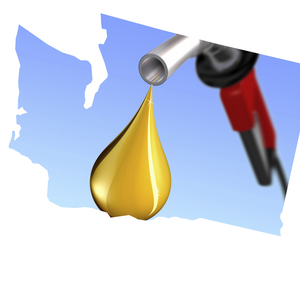Washington State House passes Clean Fuel Standard

Image: BBI International
March 13, 2019
BY The National Biodiesel Board
The National Biodiesel Board would like to congratulate Washington State for being a leader in clean, low carbon fuels such as biodiesel and renewable diesel. On March 12, the state House of Representatives passed a Clean Fuel Standard (HB 1110) that would institute a low carbon fuel program by 2020. The program is designed to reduce greenhouse gas (GHG) emissions from transportation fuels 10 percent below 2017 levels by 2028 and 20 percent below those same levels by 2035. Supporters share that the program will play a significant role in meeting the state’s overall greenhouse gas emissions reduction goals.
“Washington is poised to become a national leader in production of clean, renewable fuels like biodiesel once this bill is signed into law,” said Rep. Joe Fitzgibbon who sponsored the legislation into the Washington House of Representatives. “Job growth and emissions reductions can go hand in hand, and by passing HB 1110, the House has taken a strong stance in favor of growing rural jobs and cleaning up Washington’s air.”
To meet state GHG emissions reduction targets, Washington State will need to increase use of fuel alternatives such as biodiesel and renewable diesel. Historically, biodiesel consumption in Washington State has been relatively low compared to the rest of the nation. With implementation of a Clean Fuel Standard, however, that would change quickly.
Advertisement
“Implementation of this program would bring Washington in line with other renewable fuels champions on the West Coast—such as Oregon, California and British Columbia, Canada—creating a unified market for clean fuels on the West Coast,” said Shelby Neal, NBB director of state governmental affairs. “This is a great step forward for the environment, consumers and green industry in Washington State.”
Advertisement
Related Stories
California’s new specified source feedstock attestation requirement: A critical new compliance step for renewable fuel producers
As of July 2025, California’s SCFS requires renewable fuel producers using specified source feedstocks to secure attestation letters reaching back to the point of origin. This marks a significant shift in compliance expectations.
The public comment period on the U.S. EPA’s proposed rule to set 2026 and 2027 RFS RVOs and revise RFS regulations closed Aug. 8. Biofuel groups have largely expressed support for the proposal but also outlined several ways to improve the rulemaking.
The U.S. renewable fuels industry on Aug. 8 celebrated the 20th anniversary of the Renewable Fuel Standard. Federal lawmakers also marked the occasion with resolutions introduced in the House and Senate earlier this month.
Iowa farmers have a new market opportunity for their 2025 soybean crop. Landus is expanding its Clean Fuel Regulation initiative, made possible by recent policy changes expected to increase Canada's demand for liquid biofuel.
Klobuchar, Moran introduce bipartisan legislation to support biorefineries, renewable chemicals, and biomanufacturing
Sens. Amy Klobuchar, D-Minn., and Jerry Moran, R-Kan., on July 31 announced the introduction of the Ag BIO Act. The legislation aims to update the USDA’s loan guarantee program to better support biorefining projects.
Upcoming Events










